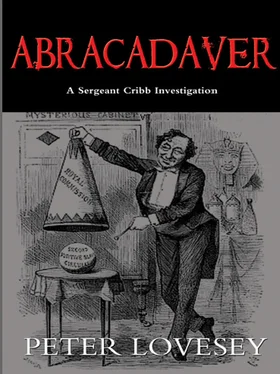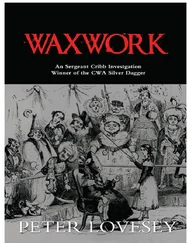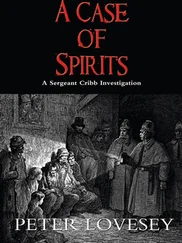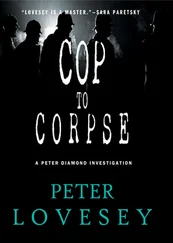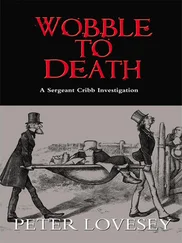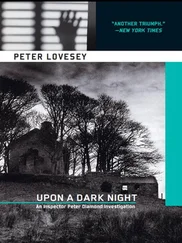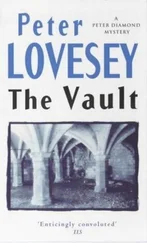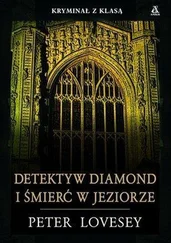He turned.
‘Sam Fagan,’ said the speaker, extending a hand. ‘Top of the bill in my time, but just a fill-in here. This class of audience don’t take to my brand of humour. It’s the spice they’ve come to sample—the tit-bits you don’t get in the penny gaffs. They’re all toffs out there, you know. Mr Plunkett don’t allow no riff-raff in the midnight house. Members of Parliament, Peers of the Realm, Field-Marshals and Generals. Now what can a cockney comic like me say to a nobby crowd like that? I tell you, they ain’t interested. It’s no good getting myself up in this toggery, neither. I might as well put on my tartan suit and red nose.’ Even so, he checked the angle of his silk hat in a mirror hanging on the wooden framework of the scenery. The strain of years of laughter-seeking showed in his face. He grinned like a gargoyle. ‘The poem ought to curl ’em up, though. Listen, if you haven’t heard it. Hey ho! Here come the girls.’
The dancers performed their last shrieking high-kicks, turned, wriggled their hips, blew kisses across the footlights and swaggered to the wings, clustering round Thackeray again, several holding his arms for balance as they loosened their boots. Waves of warmth rose from their glistening bodies. ‘What’s Plunkett got out there tonight?’ the redheaded dancer angrily demanded. ‘You show more leg than anyone’s seen outside the giraffe house and bob your bristols up and down like buoys at high water and what does the applause sound like? Two wet plaice being dropped on a marble slab. Not a ruddy whistle from anyone. You’d think it was a bleeding temperance meeting. Well wouldn’t you?’
No-one answered. Perhaps they were too short of breath. Certainly the response of the audience had been luke-warm. Thackeray surmised that if Fagan were correct and Peers and Parliamentarians really were present, the cool reception was not so remarkable. People of that class were not accustomed to such displays. Some of them had probably walked out in disgust. Plunkett would need to find something more tasteful if he hoped to attract the aristocracy to the Paragon. Sam Fagan, at least, had the wit to see that vulgarities were not in order tonight. He was reciting ‘The Cane-bottom’d Chair’.
Nobody seemed to require any heavy props, and Albert’s mother was still secure in the flies, so when the dancers had dispersed (not without winks), Thackeray gave his attention to the poem. For a small man, Sam Fagan possessed a good carrying voice. One of the prop-men on the opposite side had brought on a large potted fern and Fagan was standing beside it, addressing his audience, but turning occasionally to direct a limp hand towards the wings. As an elocutionist, he lacked the polish of more practised performers, but it was a spirited rendering, even if the emphasis seemed a little uneven in parts. The disquieting feature of the recitation was the way it was being received. Sections of the audience were openly convulsed with laughter. To Fagan’s credit he was not at all discountenanced; perhaps the rehearsal at Philbeach House had steeled him for such an ordeal.
‘It was but a moment she sat in this place.
She’d a scarf on her neck and a smile on her face.
A smile on her face and a rose in her hair,
And she sat there and bloom’d in my cane-bottom’d chair.’
He paused, actually smiling back at the mockers below, who now regrettably seemed the greater part of the audience.
‘And so I have valued my chair ever since
Like the shrine of a saint or the throne of a prince;
Saint Fanny my patroness sweet I declare,
The queen of my heart and my cane-bottom’d chair.’
Where was the humour in that? Thackeray was beginning to believe that the halls were not the place for serious poetry.
Then the lights were lowered, indubitably for effect as the final verse of the poem was recited, but the audience could scarcely contain themselves, whistling and calling out as coarsely as anyone had done at the Grampian. ‘He can’t find his Fanny!’
Someone tugged Thackeray’s sleeve. ‘Push this into the middle. Not too fast.’
On to the open stage? Good Lord! Thank heavens the place was in darkness.
He looked down at the prop. Of course—a cane-bottom’d chair! And in it he could just see a seated young woman, presumably a dramatic representation of Fanny. By George, someone at the Paragon had a genius for scenic effects. He pushed at the chair-back; it was on wheels and moved easily. Fagan was already beginning the verse:
‘When the candles burn low, and the company’s gone.
In the silence of night as I sit here alone—
I sit here alone, but we yet are a pair—
My Fanny I see in my cane-bottom’d chair.’
A spotlight streamed down from the flies, dramatically picking out the chair. Thackeray reacted with as neat a side-step as you could hope to see outside a prize-ring. He smiled in the shadows. Who would have believed it was his first night as a scene-shifter? An instant later the smile froze and he was almost bowled over. Not by the massive and unexpected roar from the audience, but by the sight which provoked it. The young woman in the chair was wearing nothing at all.
Thackeray clapped his hand to his forehead. Thirty years in the Force had to have some relevance to this situation. His first impulse was to restore order by snatching the chair back into the darkness, but that involved the considerable risk of ejecting the sitter. That was unthinkable. Then he considered treating the audience like a runaway horse, and leaping protectively in front of the chair with arms outspread and waving. In uniform he could have brought himself to do that; not in yellow satin and white stockings.
Before he could think of another expedient, someone mercifully brought down the curtain. A coat was tossed to the young woman and she got up, put it round her shoulders and walked past Thackeray and off the stage, as unconcerned as if she were shopping in the Strand. He felt a trembling sensation in the region of his knees. What in the name of Robert Peel was he participating in?
‘Look alive there!’ someone shouted. ‘Transformation scene!’
Other liveried figures were already struggling with scenery and scrambling up the fly-ladders. ‘Carry out your orders like the rest, whatever happens,’ Cribb had said—but could he have envisaged anything so unspeakable as what had just taken place?
‘The winch, man!’ a voice bellowed. ‘You’re wanted on the winch!’
In a ferment of scandalised confusion, he reeled to the wings and took his place at the handle, beside another of the heavy contingent.
‘All right. She comes down about fifteen turns of the handle till she’s nice and central,’ explained his companion. ‘When I release the catch I want you to take the strain. Hold on as if it’s your own mother up there. Right?’
Thackeray nodded. The catch was released. He braced and gripped the handle grimly. The seam down the back of his jacket began to part under the strain. By Jove, it was harder work letting Albert’s mother down gently than winching her up. Even before the fifteen turns were made, Harry in the fly-gallery pulled on his guy-rope to produce a lateral swing on the balloon-car. At the same time the curtain went up, the band played and the lime-boys directed a brilliant blue light on to the gauze-cloth suspended across the stage.
Albert’s mother, soon oscillating convincingly against an azure background, launched powerfully into Nellie Power’s song.
‘Up in a Balloon, girls, up in a Balloon,
Sailing through the air on a summer afternoon.
Up in a Balloon, girls, up in a Balloon,
What a happy place, now, to spend your honeymoon.’
Unfortunately either the pendulum motion or the awfulness of the lyric had upset the second passenger. As a pianissimo passage sought to convey the airy delights of ballooning, a dismal whining was plainly audible from above. Beaconsfield’s face peered dolefully over the rim of the car.
Читать дальше
